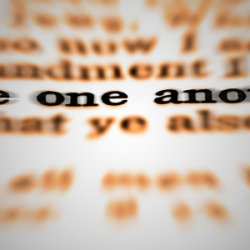If you don't know her work, Jill Lepore is a terrific historian. I have used her delightful book The Name of War: King Philip's War and the Origins of American Identity a number of times in my introductory U.S. history survey. But right now Lepore is angry, and in her latest book she has leveled her aim at the Tea Party. The Whites of Their Eyes: The Tea Party's Revolution and the Battle over American History tosses just about every accusation imaginable at the "far right" (apparently calling them "conservatives" or just the "right" would not suffice). Two aspersions stand out: the Tea Partiers are at least subliminally racist -- the "whites of their eyes" refers to their nostalgia for the all-white and all-male cast of the Founding Fathers. But most essentially, they are "fundamentalists" in their quasi-Christian reverence toward the Founding Fathers.
To be fair, there's a lot of interesting history interspersed with these gratuitous fulminations. But Lepore's rant against the Tea Party is at once predictable and ironic. Predictable because Lepore fulfills the stereotypical reaction that one would expect from a liberal (I do not say "far left") Harvard professor, who cannot fathom what could motivate these Tea Partiers other than racism and religious fanaticism. The Whites of Their Eyes is ironic because it perpetuates exactly the sort of angry political feuding that Lepore ostensibly deplores. Because of the book's tone, there's no chance that anyone affiliated with the Tea Party will read this book and be chastened by it. About the only thing this kind of book is guaranteed to do is to make left-wing readers feel good about themselves.
But what of her central contention? Is the Tea Party a repackaged brand of fundamentalism? Lepore writes that the Tea Party subscribes to beliefs "about the relationship between the past and the present stricter, even, than the strictest form of constitutional originalism" -- yes, worse than Antonin Scalia's judicial views! The Tea Party, she says, is bound to a "set of assumptions that, conflating originalism, evangelicalism, and heritage tourism, amounts to a variety of fundamentalism."
If we set aside the fierceness of Lepore's accusations for a moment, I think there are a couple of points worth reflecting upon here. First, I think that Lepore is right that conservatives, especially Christian conservatives, get into dangerous territory when they treat the Founders as saints and its key documents as holy writ. This exaggerated reverence has, at times, shaded into presenting the story of the Founding as one of unvarnished holiness and perfection. For Christians, admiration for the American Founding and devotion to Christ must remain strictly separate, lest we slide into a corrupted kind of civil religion. We might easily note that religious principles undergirded the Revolution (as I do in my book God of Liberty), or that many of the rank-and-file Patriots were serious Christians. But to baptize the Founding as a unique work of God is risky business.
When we simply admire the best qualities of the Founding and do not try to conflate it with the sacred, we can comfortably affirm that the Founders achieved a very high level of political wisdom. They led Americans through a war that would have probably ruined people of lesser courage, and they set up a government that, with all its imperfections, has endured as the longest-standing republic on earth. Surely we can admire these things without bending the knee to worship.
Lepore is also onto something when she reminds us that the legacy of the Founders has been contested from the start. Even the memory of the Boston Tea Party has been put to innumerable uses. Countless protests have re-enacted the Tea Party, usually ending with people chunking some offensive item (the U.S. tax code and the like) into the waves. A "TEA Party" movement of the 1970s ironically fought for liberal tax reforms. Their name stood for "Tax Equity for Americans." We never have absolute knowledge of what the Founders would do today. But I think we can still profitably reflect upon their intentions. We know that, in some sense, they sought a democratic republic whose citizens would enjoy certain inalienable rights.
But Lepore wants us to stare the hard facts in the face: the Founders denied the basic rights of citizenship to the majority of Americans, especially slaves. She implies that because the Founders were flawed people, bound by their place and time, we can learn almost nothing from them. "Thank goodness, the eighteenth century is over," Lepore says in her acknowledgements. Surely we all agree that the leaders of our Revolution were products of a culture that was morally faulty, just as our own society is. But entirely dismissing the wisdom of that age throws out the very principles -- especially the notion that "all men are created equal" -- that helped us move past the limitations of the Founding. Thinking that you can learn something from the past does not make you a fundamentalist.
12/1/2010 5:00:00 AM





